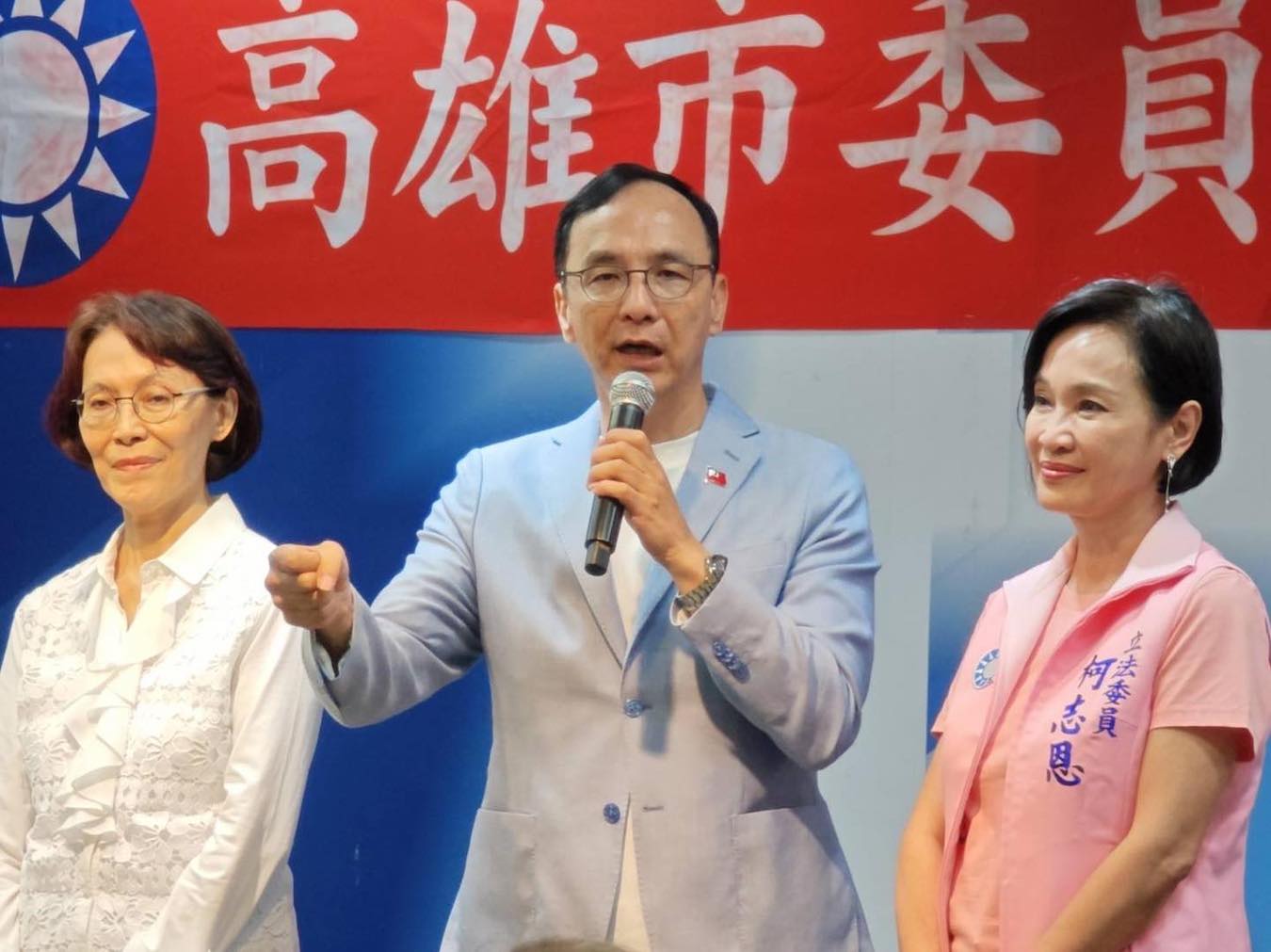by Brian Hioe
語言:
English
Photo Credit: Eric Chu/Facebook
PENSION REFORM seems set to become a battleground issue between the pan-Blue and pan-Green camps.
The KMT is currently seeking to undo the Tsai administration’s reforms to Taiwan’s pension system. Historically, members of the police, military, teachers, and public servants were paid generous pensions during the authoritarian period, as a reward for political loyalty. The KMT realized after taking control of Taiwan that it would need to maintain the loyalty of such groups in order to maintain political control, instituting an 18% preferential savings rate as part of pensions.
Indeed, this system led to members of the police, military, teachers, and public servants constituting an elite economic and political class during the authoritarian period, which favored waishengren descended from those who had come to Taiwan with the KMT. While this changed after democratization, workers in such groups are still seen as favoring the KMT when voting.
Such pensions, however, meant that the pension system as a whole could potentially go bankrupt by 2030. As such, the Tsai administration moved to amend the pension system in its first term. This led to pushback from deep Blues, however, who were mostly veterans, who termed themselves the “800 Heroes,” after one of the KMT’s war stories from the Chinese Civil War involving the defense of the Sihang Warehouse.
The “800 Heroes” attempted to occupy the Legislative Yuan, resulting in the death of one member and another losing a finger, and mounted an occupation encampment outside of the legislature. Public outrage did not swell even after the death, suggesting that the issue was not one which found widespread support with the public.
 KMT chair Eric Chu (center). Photo credit: Eric Chu/Facebook
KMT chair Eric Chu (center). Photo credit: Eric Chu/Facebook
Still, the KMT has continued to leverage on the issue, hoping to win support from members of the police, military, teachers, and public servants. Interestingly, through pushing on the issue of pensions, the KMT could potentially be aiming to win back the loyalty of veterans. KMT chair Eric Chu recently downgraded the status of the veteran-dominated Huang Fu-hsing branch of the party, given its ideologically hardline reputation, so as to try and appeal to moderates. As such, the KMT may be hoping to retain their allegiance by taking a strong stance against the Tsai administration’s pension reforms.
The DPP has sought to appeal to young people on the issue, including framing the issue of pension reform as potentially necessitating a “new Sunflower Movement.” After all, it is young people who will most be affected if the pension system goes bankrupt. Indeed, the Tsai administration sometimes framed pension reform as part of efforts to realize transitional justice in Taiwan. But, in this light, one notes that the KMT is not likely to win support from young people on the basis of pension reform.
In particular, however, it is to be seen how the TPP stands on the issue. The light blue political party distinguished itself in the last set of elections, given the popularity of party chair and presidential candidate Ko Wen-je among young people. The TPP has to date avoided voting on the issue of pension reform, resulting in a narrow win for the KMT through its slight lead over the DPP in the legislature. But the TPP’s inaction could be framed by the DPP as a means by which the party does not, in fact, stand with young people, and proves itself no different than the KMT.
In a similar timeframe, the DPP has proposed stiffening penalties for retired military staff accused of spying by stripping them of their pensions. This has been pushed for as a measure applying to retired military staff that violate the Anti-infiltration Act or the National Security Act. 14 former military staff that currently face such charges have been ordered to return 40 million NT currently, but 85% of the amount has not been repaid.
The DPP’s efforts to target the pensions of retired military staff as a deterrent against spying illustrates how pensions are a significant issue for retired military staff–not only because of the financial benefit, but as an issue of prestige. Still, while the DPP’s use of pensions can perhaps serve to deter spying, one notes the DPP’s current imperative to change the image of the military, so as to bolster its use as a deterrent against China. This proves another way in which the DPP has struggled with taking control of institutions formerly controlled by the KMT, then.

